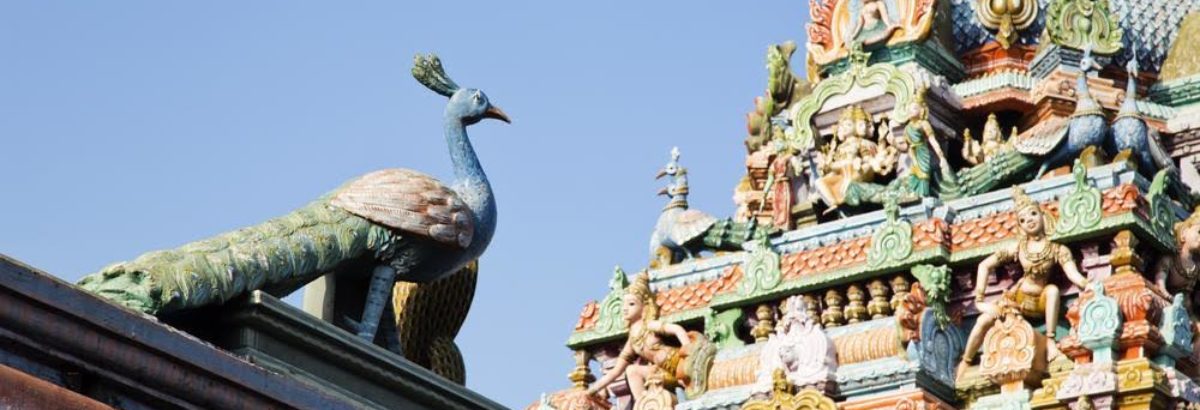- The story of Narada is summarized in the Srimad Bhagavata Mahapuranam. Skandha VII Chapter 15 Slokas 69-73 tell us how blessings come disguised as a curse. In the past kalpa Narada was a Gandharva named Upabarhana endowed with a charming form, sweet speech and fragrant odour; who led a live of drunkenness and pleasure seeking; and was dear to women. When summoned by the Prajapatis to sing about the Lord at a sacrificial festival of the Devas, Upabarhana went there surrounded by women singing love songs. Noting his insolent conduct, the Prajapatis cursed him to immediately become a low born one deprived of all power and beauty. After that Narada was born as the son of a main-servant serving holy men established in Brahman.

- Narada’s story is continued in Skandha I Chapters 5 and 6 of the Bhagavatham. By listening continuously all through the spring and rainy season, at the three Sandhyas of the day (udayamasthanam), to the recitals of the Lord’s sanctifying glory by holy men (Munis and Mahatmas) there sprang up in Narada born as the son of a maid servant that powerful devotion, which obliterates all traces of Rajas and Tamas, that makes one loving, humble, sinless, attentive, self-controlled & obedient; making him a fit recipient of the transcendent knowledge of the Supreme Divine (Jnanam Guhyatamam). The holy men imparted this knowledge to the maid servant’s son Narada who sat under a banyan tree and began to meditate on the Supreme Being immanent in oneself as instructed by his teachers and thus attained Nirvikalpa Samadhi. The Lord tells Narada that he cannot be seen by Yogis who are not completely free from all passions of the heart. Narada as the maid servants son then eschews pride, jealously, other passions of the heart and engages himself in loudly proclaiming the names of the Infinite Being without any sense of shame, in constantly remembering the sanctifying and mysterious doing of the Lord, and in wandering from place to place free from sorrow and joy in all situations of life, steeped in the contemplation of Krishna, excluding all worldly desires. Thus the Bhagavati-tanu, divine body of Suddha Sattva fit for the service of the Lord, was generated and the boy’s mortal remains fall after the exhaustion of his prarabdha. Narada is later born as Brahma’s son as an Avatara Purusha who is the Acharya of Veda Vyasa Dwaipayana in the present Kalpa.
- Thus, Sravanam, Keerthanam and Smaranam forms of Bhakthi makes a maid servant’s son, a son of Brahma, an Avatar of God (I.3.8) and the Guru of Veda Vyasa Dwaipayana another Avatar of God. To such a personality, Lord Narayana in the 6th Canto of the Adbhuta Ramayana says:
“27. I am not pleased as much by charities, Tapa (doing austerity, penance and keeping of stern religious vows) honour and praise as well as by going on pilgrimage, as I am by singing or chanting my name individually or in chorus in a group (i.e. doing Kirtana).
- Those who sing my holy name and divine glories are able to find an abode in my heaven near me. Kausika is a living example of this; he has attained my abode by singing my name with great devotion.
Those who sing the glories of my divine name using all the 7 modes and notes (murcchanaadiyutam) of Indian classical music are very endearing to me. That is the reason, that Tumburu is dearer to me as compared to you.
- You should also sing similarly employing all the modes and notes of classical music (melakarta) besides using precise beats and rhythm (tala) to sing, and attain the same stature as attained by Tumburu (murcchanaatalayogena gaanena). If you have an inclination to sing and learn more above devotional music, go and see “Uluka” the divine Owl.”
— Dr.V.Meenakshi Jayakumar
—- to be continued.
